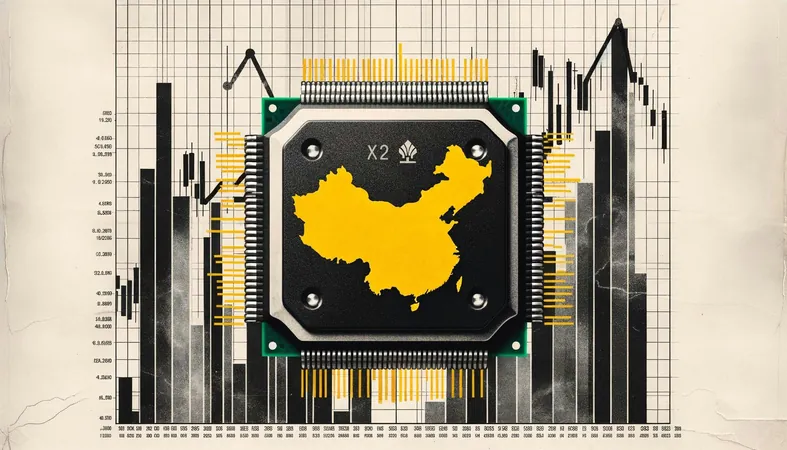
China and Hong Kong Stocks Plummet Amid Rising Geopolitical Tensions: What You Need to Know!
2025-01-08
Author: Yan
China and Hong Kong Stocks Plummet Amid Rising Geopolitical Tensions: What You Need to Know!
Chinese and Hong Kong stocks have taken a significant hit recently, primarily driven by escalating geopolitical tensions and prevailing economic challenges that are shaking the very foundations of the chip manufacturing and consumer sectors. This drop has not only affected local markets but has also sent shockwaves across broader Asian financial landscapes.
So, what’s behind this downturn?
The fraught relationship between the United States and China continues to send ripples through Chinese financial markets, significantly impacting major indices such as the Shanghai Composite and the CSI300. Both indices experienced declines of approximately 1.5%, signaling mounting investor concern. Notably, semiconductor powerhouses like SMIC and Hua Hong Semiconductor have found themselves under severe pressure, witnessing drops of nearly 5%. This follows the recent move by the U.S. Defense Department to add more companies with ties to Beijing’s military ambitions to its list of restricted entities.
Despite ongoing efforts by Beijing to stimulate consumer spending through incentives like trade-in discounts, the consumer sector index has tumbled by 1.3%. Analysts at Goldman Sachs have cautioned that the complicated dynamics surrounding tariffs and potential policy shifts accompanying the incoming U.S. administration could lead to prolonged volatility. Many experts anticipate that we may not have a clearer picture until after March, when more definite policy directions are expected to emerge.
Why does this matter to global investors?
The effects of turmoil in China do not stop at its borders. The MSCI Asia ex-Japan stock index declined by 0.60%, while Japan's Nikkei index fell by 0.13%, underscoring the interconnectedness of global markets and the significant role that China's economic health plays worldwide. Investors are increasingly cautious, as the growing geopolitical tensions could lead to further volatility and demand strategic adjustments in investment approaches.
Looking at the bigger picture, the geopolitical landscape is elevating fears of a potential economic slowdown in China, which could have profound consequences for economies around the globe. A weakening yuan, alongside declines in both U.S. and regional American Depository Receipts (ADRs), reflects the broader uncertainty that is plaguing international markets. As the National People's Congress approaches, all eyes are on policymakers to see how decisions made in this critical forum will shape future economic partnerships and market dynamics on a global scale.
Conclusion
In summary, as China grapples with both internal and external pressures, the implications for investors and the global economy are profound. The volatility seen in these markets is a reminder of the delicate balance that exists in our interconnected world, illustrating that what happens in China doesn’t just stay in China. Keep your eyes peeled for the upcoming policy announcements—they could dictate the market’s next move!



 Brasil (PT)
Brasil (PT)
 Canada (EN)
Canada (EN)
 Chile (ES)
Chile (ES)
 Česko (CS)
Česko (CS)
 대한민국 (KO)
대한민국 (KO)
 España (ES)
España (ES)
 France (FR)
France (FR)
 Hong Kong (EN)
Hong Kong (EN)
 Italia (IT)
Italia (IT)
 日本 (JA)
日本 (JA)
 Magyarország (HU)
Magyarország (HU)
 Norge (NO)
Norge (NO)
 Polska (PL)
Polska (PL)
 Schweiz (DE)
Schweiz (DE)
 Singapore (EN)
Singapore (EN)
 Sverige (SV)
Sverige (SV)
 Suomi (FI)
Suomi (FI)
 Türkiye (TR)
Türkiye (TR)
 الإمارات العربية المتحدة (AR)
الإمارات العربية المتحدة (AR)